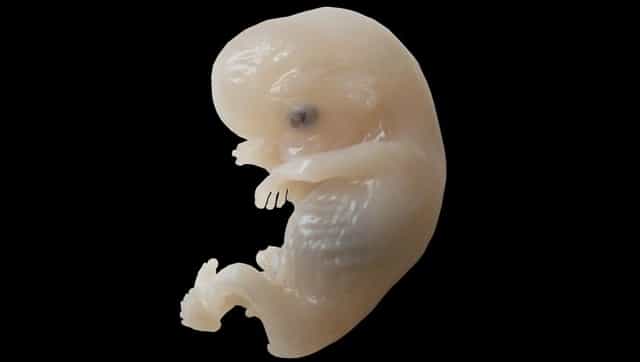Humans normally have a total of 23 pairs of chromosomes. Down syndrome or trisomy 21 is a genetic condition that occurs when a child is born with an extra 21st chromosome and the child would show developmental (both physical and mental) delays as a result. The condition can also be seen prenatally. There is no cure for Down syndrome. The condition is managed through medications and therapy to improve the quality of life of the child. Now, a group of researchers at the National Institute of Health say that apigenin, a plant compound present in plants like chamomile, peppermint, parsley and citrus fruits may help treat Down Syndrome in the womb. The findings of the preclinical study are published in the American Journal of Human Genetics . Inflammation and antioxidants Even though Down syndrome is a genetic condition, experts say that the intellectual and developmental delays in the condition occur due to inflammation in the fetal brain. Apigenin is a non-toxic antioxidant compound that can help reduce inflammation and hence the researchers believed that it may be helpful in the management of Down syndrome symptoms. Apigenin is a type of flavone (a type of flavonoid) present in plants belonging to the genus Artemisia, Achillea, Matricaria and Tanacetum. These include plants like chamomile, peppermint, and celery. Over the years, several studies have shown the therapeutic benefits of apigenin. Along with being a well-known antioxidant, apigenin has also been shown to help manage neurodegenerative and autoimmune diseases and some forms of cancer. However, not much research has been done so far to test the effects of apigenin in humans as the compound is not soluble in water and, hence, is difficult to deliver. However, experts suggest that other delivery methods like liposomes and nanosuspension may be used to overcome this problem. Apigenin for Down syndrome For the study, the researchers exposed human amniocytes (amniotic cells) and mice fetal cells with Down syndrome to apigenin. Mice with a fetus who had the condition and newborn mice with the condition were also given apigenin. No new birth defect or extra death was noted due to apigenin treatment in newborn mice. On the other hand, apigenin significantly improved brain functions and developmental milestones in mice born with Down syndrome. Interestingly, males showed significantly better improvement in long term memory than females. The researchers concluded that apigenin marks its effects in multiple ways including reducing oxidative stress, reduction in pro-inflammatory cytokines, increment in anti-inflammatory compounds and improving angiogenesis (formation of new blood vessels) and the growth and development of brain cells. While the results of the study look encouraging, it is worth noting that the therapy is still in the preclinical phase and more large-scale studies would be needed to test the effectiveness and safety of the procedure in humans. For more information, read our article on Down syndrome . Health articles in Firstpost are written by myUpchar.com, India’s first and biggest resource for verified medical information. At myUpchar, researchers and journalists work with doctors to bring you information on all things health.
Researchers discover compound found in common plants can be used to treat Down syndrome in fetus
Myupchar
• October 26, 2020, 14:44:51 IST
A group of researchers at the National Institute of Health say that apigenin, a plant compound present in plants like chamomile, peppermint, parsley and citrus fruits may help treat Down Syndrome in the womb.
Advertisement
)
End of Article